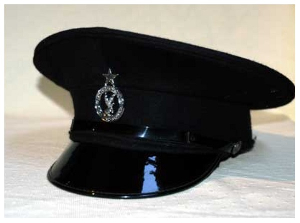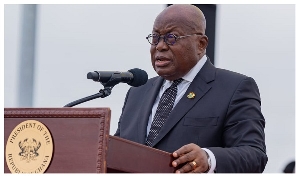- Home - Sports
- Soccer Portal
- Archived Sports News
- Sports Videos | TV
- Year In Review
- Sports Photos
- Sports Headlines
- Boxing
- Athletics
- Basketball
- Bodybuilding
- Cricket
- Golf
- Handball
- Hockey
- Martial Arts
- Tennis
- Volleyball
- Other Sports

Other Sports of Tuesday, 12 December 2000
Source: By Ghana Cricket Association
Johnny Francois ? a great cricket star
JOHN H. Francois, affectionately called by the sports fraternity, more especially the cricket clan, as Uncle J was clearly one of the best cricketers Ghana has produced in the last fifty years.
In 1949, Johnny was first selected to play as an opening batsman for Achimota School, partnered by his childhood friend Sidney Quartey. He went on to captain Achimota School in 1951. Within a year after leaving Achimota, at the age of 19 Johnny had earned a place to play for Ghana, then Gold Coast. Even at that tender age, playing in his first test he displayed an impressive sense of judgement, protecting his wicket, tiring out the bowlers and despatching the bad ball to get a decent score of 30. He gave a clear indication of how his future would shape up as a national star.
John Francois returned from Edinburgh in 1956 to join the national team and was appointed Captain in 1961. We recall with admiration his effortless half century against Nigeria at the Accra Oval as he led his team to beat Nigeria. Indeed, that clinical performance punctured by two huge sixes over the pavilion ignited the imagination of a few Achimota School boy cricketers ? notable Ashalley Okai, Joel Hyde and Albert Ankrah, who eventually joined the national team with Johnny?s encouragement and guidance.
In 1964 an ear drum problem cut short Johnny?s Test playing career. He however continued to support cricket, providing equipment and coaching. Eventually he became Team Manager of the national team, nurtured and mentored a youthful side made up mainly of students and guided his proteges to famous victory over Nigeria in 1972 after the team had lost for five year. The team he helped to build was also able to beat Sierra Leone and The Gambia culminating in a successful tour of Kenya, Uganda and Tanzania. In 1974 Johnny Francois was elected President of the West African Cricket Conference and helped choose a West African team to play the MCC during the latter?s tour in 1975. In 1982 he was made a selector for the West African team which played in the Junior World Cup in Birmingham, England. Johnny Francois was an inspiring cricketer, a good team manager and a brilliant tactician. His whole personality demonstrated the romanticism of the game: skill, patience, dexterity, heroic deeds; a tough duel between a batsman and a bowler.
In cricket, the team battle is dependent on the sum of individual struggles. Johnny epitomises many of its facets and roles: as a batsman, slip fielder, occasional bowler, wicket keeper and captain. He gave his heart and soul to cricket and caused it to loom with his own genial and gentle bulk in the eyes of his fellow cricketers, their partners, children and all other lover of the game. His strongest point was as a batsman. As a great ball player, mastering the techniques, he played all the shots: on and off drive, cover drive, the cut, the hook, the pull, the sweep and the glide.
One of his greatest shots was the straight drive for ?six? played on the back foot over the head of the bowler and all the fieldsmen in the ?V?. Indeed in Johnny as a batsman we recognised the special relationship between a good eye, a powerful hand and a quick and thoughtful mind. We can say with some confidence that if he had relocated to England after his sojourn in Scotland we might have read about a famous Francois playing for Nottinghamshire like Sire Garfield Sobers or for Somerset like Viv Richards. Johnny was disciplined and deeply committed to cricket, a game which unfortunately is hardly heard of now in Ghana. Let us hope that the current efforts to revive cricket, particularly at the juvenile level, will bear fruit; and that memories of the exploits of Johnny will thus be handed down to future generations. The Ghana Cricket Association and all cricket lovers are proud to have had such a man as one of us.
May Johnny Francois rest peacefully in the Lord.










